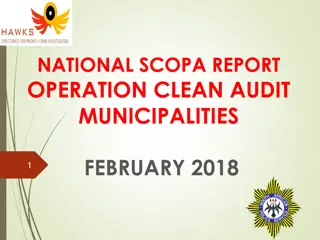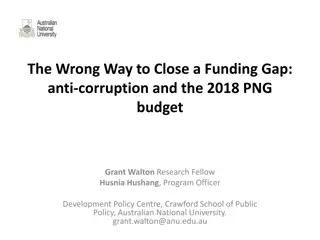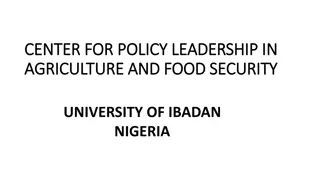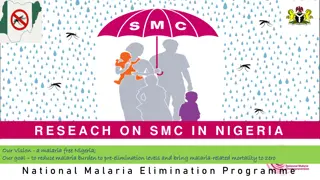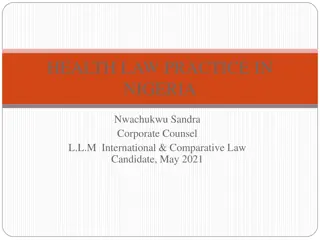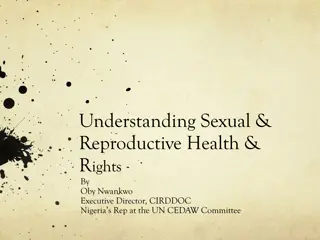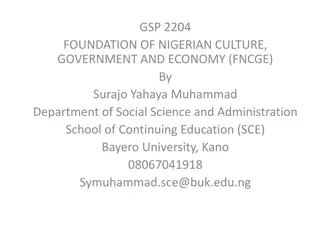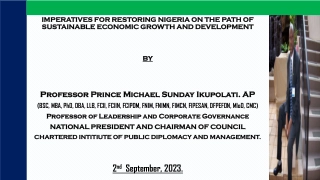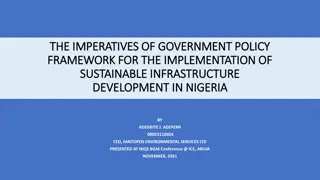Fighting Corruption and Asset Recovery Efforts in Nigeria
The Nigerian government has implemented various measures to combat corruption, enforce laws, engage the public, and recover assets. Notable initiatives include the prevention of corruption, enforcement of sanctions, ethical reorientation, and the recovery of misappropriated funds. These efforts involve implementing policies such as the Treasury Single Account (TSA), Bank Verification Number (BVN), and the Whistle-Blower Policy. Legal frameworks enabling criminal and civil forfeiture play a crucial role in the process. The case of a prominent Politically Exposed Person involved in diverting funds and money laundering highlights the importance of international collaboration in investigating and prosecuting such cases.
Uploaded on Jul 29, 2024 | 0 Views
Download Presentation

Please find below an Image/Link to download the presentation.
The content on the website is provided AS IS for your information and personal use only. It may not be sold, licensed, or shared on other websites without obtaining consent from the author. Download presentation by click this link. If you encounter any issues during the download, it is possible that the publisher has removed the file from their server.
E N D
Presentation Transcript
NACS PREVENTION OF CORRUPTION ENFORCEMENT AND SANCTIONS PUBLIC ENGAGEMENT ETHICAL REORIENTATION RECOVERY OF ASSETS
ENFORCEMENT OF POLICY ON TREASURY SINGLE ACCOUNT (TSA) INTRODUCTION OF BANK VERIFICATION NUMBER (BVN) PRESIDENTIAL INITIATIVE ON CONTINUOUS AUDIT (PICA) AND THE WHISTLE-BLOWER POLICY
LAWS ENABLING CRIMINAL FORFEITURE LAWS ENABLING CIVIL FORFETURE ENABLING LAWS OF THE ACAS, CRIMINAL AND PENAL CODES, ADMINISTRATION OF CRIMINAL JUSTICE ACT, OTHERS ADVANCE FEE FRAUD ACT
Suspect is a prominent Politically Exposed Person. Allegations bother on diversion of public funds and money laundering . The suspect influenced the award of contracts and lucrative business opportunities in the Nigerian Oil and Gas Sector to companies beneficially owned by the suspect s cronies. The companies were unqualified and either improperly performed their obligation or, in some instances failed entirely to perform. Nevertheless, these companies received more than $1.5 billion in revenues through the sale of Nigeria crude oil. In return, the duo corruptly offered and gave millions of dollars worth of gifts and benefits to the suspect and subsequently laundered the proceeds of the illicit business opportunities within and outside Nigeria. Various properties and accounts belonging to subjects were traced in Nigeria , United Kingdom and the United States of America.
The EFCC under Section 28 of the EFCC Act applied for and obtained an interim forfeiture of various properties within and outside Nigeria traced as proceeds of crime which were linked to the subjects. Section 28 of the EFCC Act provides for conviction based forfeiture. At the same time the suspect was under investigation by the UK authorities for money laundering offences. The UK authorities collaborated with the EFCC to build the case of money laundering and while the investigation was going on in the UK the suspect was not allowed to leave the UK. Seeing that the interim forfeiture order obtained in Nigeria was conviction based and with the unavailability of the suspect to stand trial in Nigeria, the Commission changed strategy and applied for civil forfeiture under Section 17 of the Advance Fee Fraud Act of various properties and accounts linked to the subject located with the country.
The procedure provided under S17 of the AFF Act is for the party making the application to come by way of ex-parte application, then publication of the list of properties in two national dailies for anyone interested to show cause why the properties should not be forfeited after 14 days the party making the application should apply by motion on notice to the court for the final forfeiture of the properties. 14 days after the publication, the Commission applied to the court for final forfeiture of the properties, various persons claiming to have interests in the properties appeared and after weighing the overwhelming evidence in support of the Commission s application the court ordered the final forfeiture of the properties.
The UK authorities are building a case of money laundering against the suspect for properties traced to the suspect and located in UK while the US department of Justice is in the process of instituting a civil forfeiture proceeding against properties traced to the subject located in the United States. Various properties in Nigeria worth millions of Naira were forfeited to the Federal Government alongside the sum of N7, 763, 764, 140.70 (seven billion seven hundred and sixty three million, seven hundred and sixty four thousand and seventy kobo) and $7, 740, 197.96 (seven million seven hundred and forty thousand, one hundred and ninety seven naira and ninety six kobo.
Following a tip- off the EFCC searched and recovered $43.4M, 27,800 POUNDS and N23.2M NAIRA from a highbrow location in Lagos. Using section 17 of the AFF ACT the EFCC recently obtained a final forfeiture order for the monies
US $9.8 Million was discovered by EFCC in a small house in a poor neighbourhood in Kaduna State following a tip-off Investigations disclosed that the house belonged to a PEP Upon arrest he claimed the monies were gifts from well wishers EFCC obtained an order on Interim forfeiture but a final forfeiture order is being challenged REASON FOR THE CHALLENGE ?????.
CAUTIOUS YES !!!!!!!! REASONS FOR THE HUGE CASH RECOVERIES
MAINSTREAMED INTO THE FEDERATION ACCOUNTS IN ACCORDANCE WITH THE CONSTITUTION REPARATIONS
DRAGGING PROCESS OF PASSING THE PROCEEDS OF CRIME BILL INTO LAW MANAGING RECOVERED ASSETS - Dissipation - Cost of Recovery - Public Confidence
ENERGISING THE ASSET RECOVERY UNITS OF THE ACAS ASSET RECOVERY WORKING GROUP PRESIDENTIAL COMMITTEE ON RECOVERY OF ASSETS COMMITTEE ON ASSET TRACING ASSET MANAGEMENT UNIT IN FMOJ
ORGANIZED CSOS , NGOS ETC ETHNIC AND RELIGIOUS BASED GROUPS


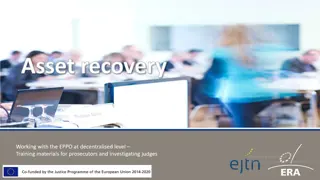
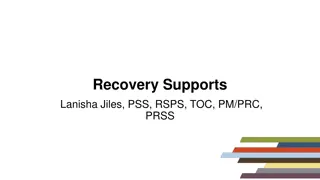
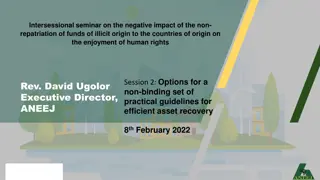
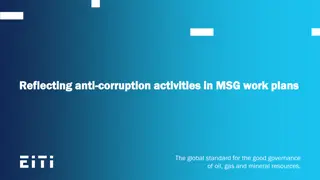

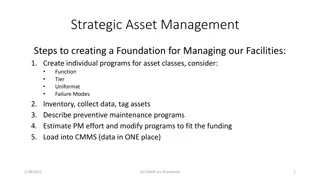
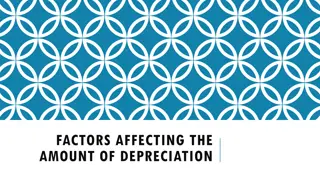
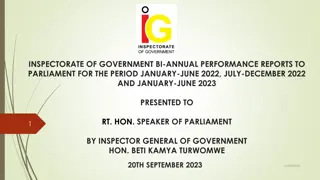
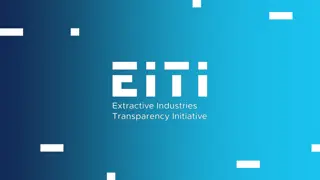
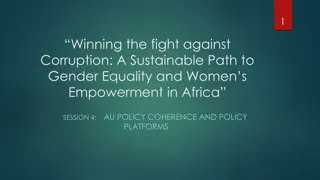
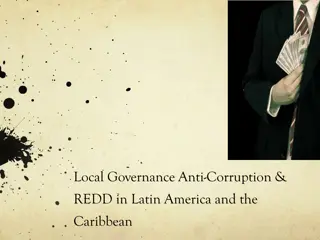

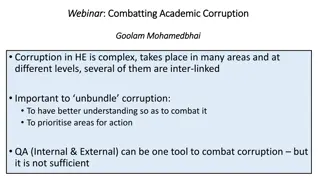
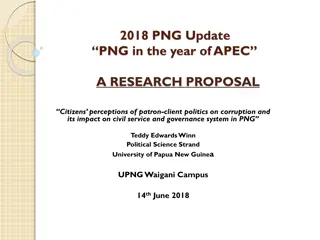
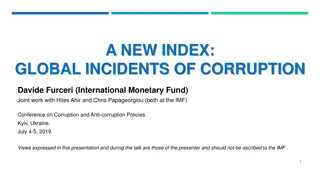



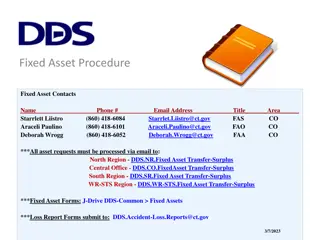


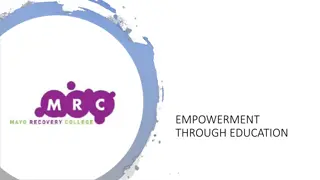




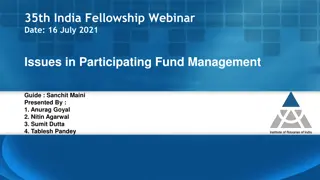
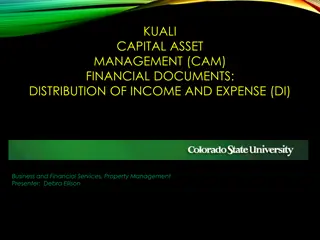

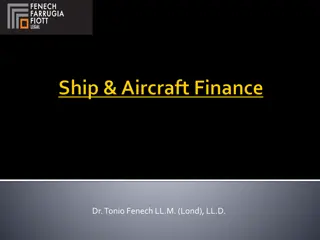

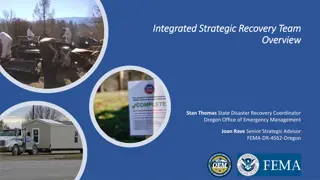
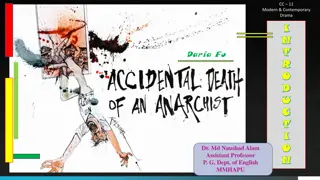

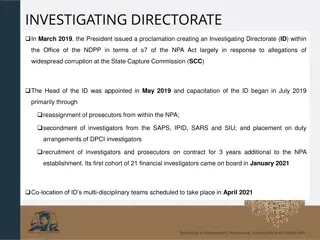
![Comprehensive Overview of Corruption Watch Submission on Public Procurement Bill [B18B-2023]](/thumb/138344/comprehensive-overview-of-corruption-watch-submission-on-public-procurement-bill-b18b-2023.jpg)
